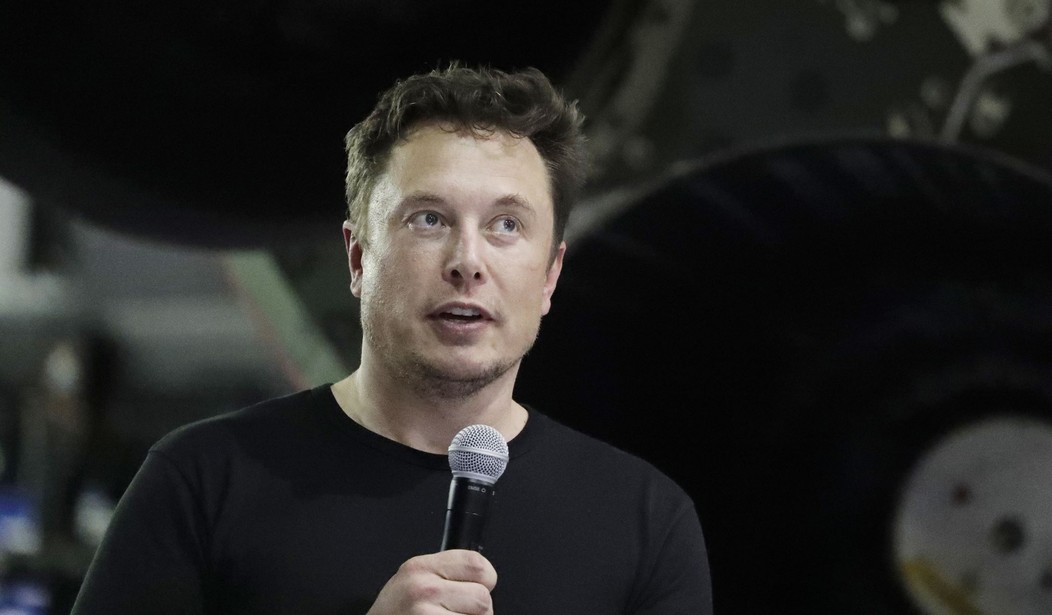Elon Muck spends time on Twitter everyday. Some of the exchanges are trivial and clearly just for fun, like this one:
Thanks 😎
— Elon Musk (@elonmusk) October 26, 2021
But others have more of an edge. Yesterday he responded to someone’s proposed letter for rejecting a wealth tax Democrats hope to unveil this week. The form letter basically says that the sender rejects the wealth tax on billionaires because tax proposals often have “scope creep” and could eventually impact people beyond billionaires. Musk responded to that saying, “Exactly. Eventually, they run out of other people’s money and then they come for you.”
Exactly. Eventually, they run out of other people’s money and then they come for you.
— Elon Musk (@elonmusk) October 26, 2021
Musk’s response is a paraphrase of a famous Margaret Thatcher line about socialist governments running out of other people’s money.
It’s good to see Musk borrowing from Thatcher. The move to Texas really does seem to suit him. And he clearly has a point. Looking at the history of taxation, it always starts small and then over time the socialists/Democrats realize they could glean a bit more money by lowering the threshold or raising the tax. They can say this won’t happen but it always happens.
The proposal itself hasn’t been released yet but apparently the plan is to get the camel’s nose under the tent by focusing solely on billionaires. The NY Times wrote about the idea being pushed by Sen. Wyden yesterday and how it differs from the wealth tax that Sen. Warren proposed earlier:
The Wyden plan would require the very wealthy — those with over $1 billion in assets or three straight years of income over $100 million — to pay taxes based on unrealized gains…
It could create some very large tax bills for that small sliver of Americans. If a family’s $10 billion net worth rose to $11 billion in a single year, a capital-gains rate of 20 percent would imply a $200 million tax bill.
And by applying the new tax system only to a few hundred families that are very wealthy, Democrats are betting that they will not cause excessive hassles to millions of moderately wealthy Americans.
So the Warren plan would have just demanded an annual percentage of a person’s wealth every year, whether they had a good year or a bad one. The Wyden plan would only tax unrealized gains. So if Amazon stock goes up 10% then Jeff Bezos’ has significant unrealized gains in his stock portfolio which he would be taxed on. Not the total value of the stock itself, only the gains even though those gains haven’t been realized by a sale. In theory, someone could have unrealized gains one year when a stock goes up and losses another year when it goes down but, presumably, the US treasury won’t by sending anyone a check to make up for unrealized losses, they just won’t tax you when you lose (or in a given year when you lost more than you gained).
It’s not a pure wealth tax but it’s still a tax on gains that haven’t been converted to income through a sale and that sounds a bit like…a wealth tax. The Washington Post says they already have a gimmicky name for it, which renames unrealized gains as “income.”
The specific idea now under consideration is being termed a “Billionaire’s Income Tax.” Developed by Sen. Ron Wyden (D-Ore.), who chairs the Senate Finance Committee, it would tax financial gains on all tradable assets annually, even if they have not been sold.
Experts believe the tax would net anywhere from $250 billion to $500 billion the first year, when it would have its biggest impact.
I’m sure they’ll get everyone their talking points later this week but, for the moment, Speaker Pelosi has already given away the game:
Notably, leading Democrats are on different pages on whether to think of the Wyden billionaires’ tax as equivalent to a wealth tax. On CNN on Sunday, House Speaker Nancy Pelosi said, “We probably will have a wealth tax,” while Ms. Yellen said later on the same show that “it’s not a wealth tax, but a tax on unrealized capital gains of exceptionally wealthy individuals.”
Speaking of Janet Yellen, Musk had another comment about whether the private sector or government is better at allocating capital:
Who is best at capital allocation – government or entrepreneurs – is indeed what it comes down to.
The tricksters will conflate capital allocation with consumption.
— Elon Musk (@elonmusk) October 26, 2021
If you really believe that the “Billionaire Income Tax” won’t eventually become the investor’s income tax for a lot more people, then there’s a bridge for sale in New York I’d like to show you.









Join the conversation as a VIP Member